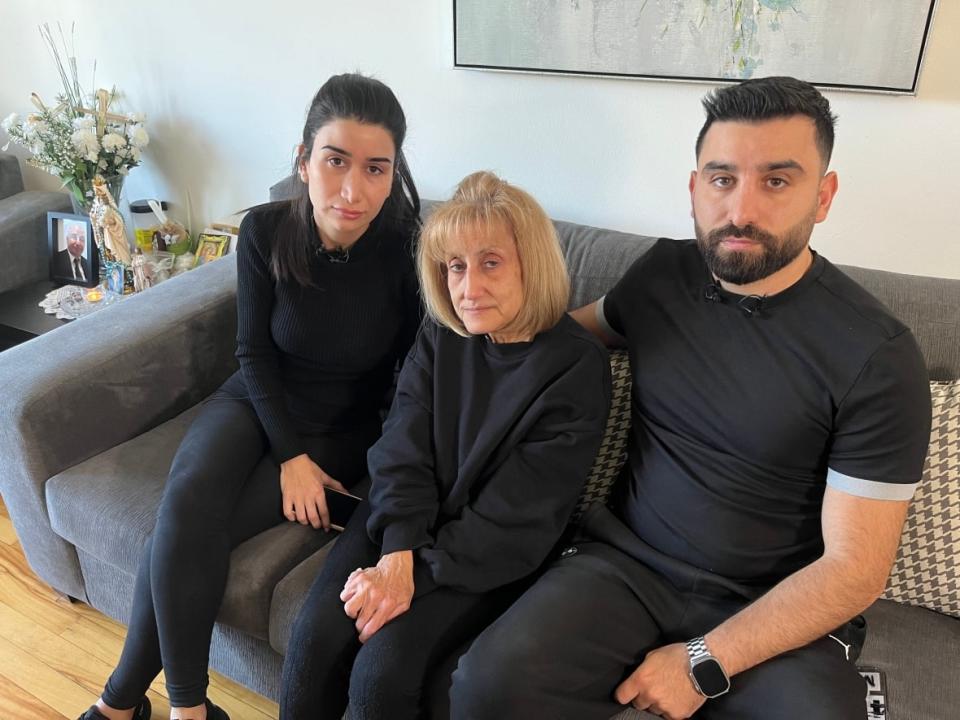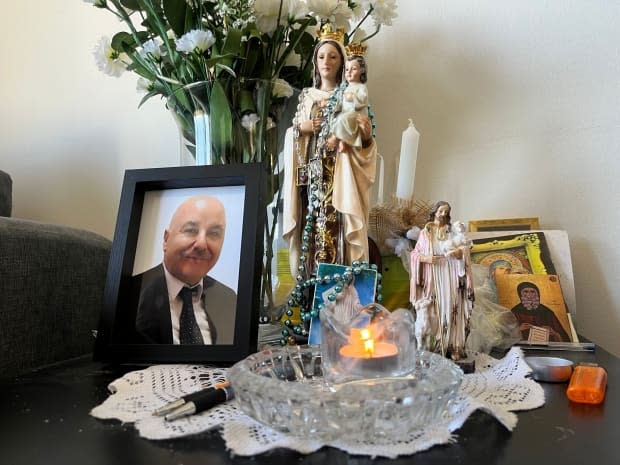They received the wrong body after their father died in Cuba

Miriam Jarjour says she's shocked, exhausted and devastated. Several weeks after her father died of a heart attack while swimming at a beach on vacation in Cuba, his body was supposed to have been repatriated by a Cuban government agency.
But when the funeral home in Laval, north of Montreal, brought the casket to a lab to have Faraj Allah Jarjour prepared for his funeral, the person inside looked nothing like the picture the family provided.
Instead, the body in front of them had a full head of hair, tattoos and looked 20 years younger. It was not Jarjour, who was born in 1956.
"I've been doing everything I can to get an answer. All I want to know is: where is he?" Miriam Jarjour said Monday, the day her father's funeral was supposed to take place.
Canadian consular services had brokered the body's repatriation from Cuba to Canada at the cost of $10,000. But when Jarjour called the consulate asking what happened, she was told it was the fault and responsibility of the Cuban agency known as Asistur. CBC News reached out to Asistur, but has not yet received a response.
"Up until now, we have no response about where my father is," said Jarjour, who is the emergency contact listed on her father's passport and was the one to fill out the necessary forms to have her father's body sent back home to Quebec.

It's also still unclear whose body was sent in her father's place.
And Jarjour says the family's troubles didn't even start with the switch-up.
After Faraj Jarjour died in Varadero, Cuba, on March 22 as the family was vacationing together, his loved ones' shock turned to horror when it took eight hours before a transportation service arrived to collect his body from the resort town popular with Canadians.
Karam Jarjour was on the beach with other family members — they were 12 on the trip — when he heard Miriam screaming from the water.
"I heard my sister screaming, 'Karam! Karam! Karam, come help me!' and I saw her in the sea and my father floating on the water," Jarjour said, sitting next to her in their parents' home in Laval, Que.
They brought their father to shore and gave him CPR to no avail. They searched for help, but said it took 45 minutes for a doctor to arrive and cover his body while they waited for Asistur to pick him up and bring him to a morgue in Havana.
"The situation was so bad, so bad," Karam Jarjour said. "We needed someone to help us and tell us what happened, and there was no one."
He said his father took heart medication every day and had been healthy leading up to that moment.
Faraj Jarjour was a florist in Aleppo, Syria, where he and his family are from. They moved to Canada in 2016, fleeing the war.
"He was kind, friendly. Every day, he was smiling," Karam Jarjour said, adding his father was active, enjoying sports and exercising. "Everyone in my city, Aleppo, knows my father," he added.
Jarjour and his wife, Dina Ghoulam, were married for 35 years. Ghoulam sat close by as Miriam and Karam Jarjour spoke with CBC News. She has had trouble eating and sleeping because of the situation, her children said.
2 grieving families
In response to a request for comment from CBC News, Global Affairs Canada said it was "aware of the death of a Canadian citizen in Cuba. Our thoughts are with the friends and family of the deceased in these difficult circumstances."
The emailed statement said consular officials were in contact with Cuban authorities and the family to provide assistance, but that "due to privacy considerations, no further information may be disclosed."
Patrice Chavegros, the vice-president of Athos, a group of 30 funeral homes and six cemeteries including the Urgel Bourgie home where Jarjour's funeral was expected to take place, says he and his colleagues have been in touch with Asistur and Global Affairs Canada.
All Chavegros was told was that the man whose body is still at his funeral home is originally from Russia. He said he received an email from Asistur Monday morning, saying it was working on having Jarjour's body repatriated as quickly as possible.
"That's what's unfortunate in all of this is you have two families. One in Montreal and one in another country who in both cases can't go through with their grieving processes," Chavegros said.
The Consulate General of Russia in Montreal told CBC News Monday afternoon that it was not involved in the situation and could not confirm nor deny whether the other man was Russian.

 Yahoo Sports
Yahoo Sports 